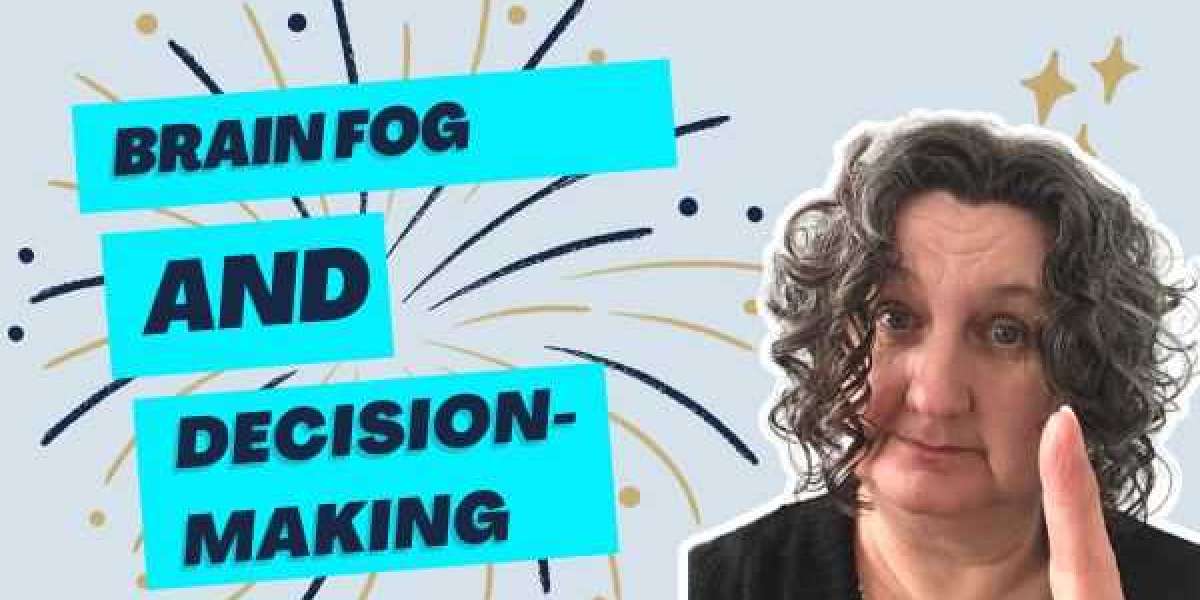Introduction:
Welcome to our discussion on brain fog and decision making during menopause. We'll explore how menopausal brain fog impacts our daily lives and decision-making abilities. As a menopausal woman myself, I understand the struggles you may face. Let's dive into this topic and find ways to manage it effectively.
What is Brain Fog During Menopause?
Brain fog is a common symptom of menopause that makes thinking clearly difficult. You might forget names, put the keys in the fridge, or struggle to concentrate. It's like your brain is wrapped in a haze, making it hard to function normally. This can be particularly frustrating when you’re trying to juggle your personal and professional responsibilities.
Symptoms of Brain Fog
Symptoms of brain fog include forgetfulness, difficulty concentrating, confusion, and trouble finding the right words. These symptoms can be sporadic or constant, varying in intensity from mild to severe. You might find yourself staring blankly at a screen, unable to recall what you were just doing, or forgetting important appointments. Names are the big one, you may find yourself talking to someone you know and be unable to recall their name.
How Brain Fog Affects Decision Making
Menopausal brain fog can severely impact decision making. Simple choices become daunting, and complex decisions seem impossible. This can lead to you feeling frustrated and helpless. Whether you’re deciding what to cook for dinner or making critical work-related decisions, brain fog can make your every choice feel overwhelming.
Why Menopause Triggers Brain Fog
Hormonal changes during menopause disrupt the neurotransmitters in the brain. This hormonal imbalance affects how we process information and communicate, leading to brain fog. Oestrogen and progesterone, which play a key role in brain function, decrease significantly during menopause, the brain 'looks' for the signals it has always had from these hormones. When those signals are no longer there they affect your cognitive processes and memory.
Stages of Menopause and Their Impact on Cognitive Function
Menopause occurs in stages: premenopause, perimenopause, menopause, and postmenopause. Each stage has differing cognitive effects. Premneopause is when menstruation is as normal. The hormonal fluctuations during perimenopause often cause the most significant brain fog and in fact is the most disruptive phase with more symptoms experienced at this stage. During postmenopause, some women may experience a continuation of symptoms, though usually to a lesser degree but not less significant.
Communication Challenges During Menopause
Brain fog can make communication challenging. You might struggle to express yourself clearly, leading to misunderstandings in both personal and professional relationships. This can affect your confidence and increase stress, further exacerbating cognitive issues.
Strategies to Improve Communication
To improve your communication during this time, listen actively before responding, keep your responses concise, and stay calm. These strategies help convey your thoughts more clearly. Using visual aids and written notes can also help keep your thoughts organised during pre-organised conversations and presentations.
Importance of Listening and Concise Speaking
Listening attentively helps you process information better, while concise speaking reduces the chances of misunderstanding. Keeping your messages short and to the point can alleviate confusion. Practicing these skills can enhance your interactions and reduce the cognitive load on your brain.
Mindfulness Practices to Combat Brain Fog
Mindfulness practices like meditation and deep breathing exercises can help reduce brain fog. These techniques calm your mind, making it easier to think clearly and make decisions. Regular mindfulness practice can improve your focus, reduce stress, and enhance overall cognitive function.
Lifestyle Changes for Better Cognitive Health
It is well documented that adopting a healthy lifestyle can significantly improve cognitive function. Regular exercise, a balanced diet, and adequate sleep are crucial for maintaining mental clarity. Incorporating hobbies and activities that stimulate the brain, such as puzzles or learning new skills, can also be beneficial.
The Role of Diet and Exercise
Eating a diet rich in fruits, vegetables, and whole grains, and staying physically active, can enhance brain function. Limiting alcohol and caffeine intake also helps reduce brain fog. Nutrients like omega-3 fatty acids, antioxidants, and B vitamins support brain health and can improve cognitive performance.
Managing Stress to Reduce Brain Fog
Stress management is essential during menopause. High stress levels exacerbate brain fog, so incorporating relaxation techniques like yoga or tai chi can be beneficial. Setting aside time each day for relaxation and self-care can make a significant difference in your mental clarity and overall well-being.
Planning for the Future During Menopause
Menopause is a time to reassess and plan for the future. Consider financial planning and exploring new career opportunities to ensure a stable and fulfilling life post-menopause. Taking proactive steps now can alleviate future stress and provide a sense of security.
Financial Strategies for Midlife Women
Financial planning is crucial for midlife women. Consider diversifying your income streams and investing in retirement plans to secure your future. Explore options like part-time work, freelancing, or online businesses that offer flexibility and additional income.
FAQs
What are the main symptoms of brain fog during menopause?
The main symptoms include forgetfulness, difficulty concentrating, confusion, and trouble finding words.
How can I improve my decision-making skills during menopause?
Improve decision-making by practicing mindfulness, reducing stress, and maintaining a healthy lifestyle.
What lifestyle changes can help reduce brain fog?
Regular exercise, a balanced diet, adequate sleep, and stress management techniques can help reduce brain fog.
How does stress affect brain fog?
High stress levels exacerbate brain fog, making it harder to think clearly. Stress management is essential for reducing its impact.
What financial strategies are recommended for midlife women?
Diversify your income, invest in retirement plans, and explore new career opportunities to secure your financial future.
Continuation of Your Menopause Success Journey:
The menopause journey is a continuum. From perimenopause and on through into postmenopause, having people who understand and support you is essential. It's not the end of your life's journey; it's a phase, and having the right community can make all the difference.
I make it my mission to support women with their transition along the menopause journey. To talk further please use this link to book a call and discuss further support.
If you would like to join a supportive community, please drop me a line here. I love hearing from midlife women going through the menopausal transition.
Pssst, you can also check out my Menopause Midlife and all the ****. It includes monthly strategies and a community of women at the same life stage as you.
Click here to get your Menopause Morning Rituals to make every day just that little bit easier.
Oh, and come say Hi on Facebook and join the free facebook group Menopause Midlife and all the **** here.







